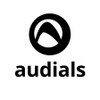A file management software that's easy to use
A file management software that's easy to use
Vote: (18 votes)
Program license: Free
Developer: Volny
Version: 1.3.4
Works under: Windows
Vote:
Program license
(18 votes)
Free
Developer
Version
Volny
1.3.4
Works under:
Windows
Pros
- Lightweight application ensuring minimal system impact
- Supports a wide range of audio formats and tag types
- FreeDB/LocalDB engine provides stable and robust database management
- Lock feature prevents inadvertent tag changes during mass edits
- Free software suitable for older Windows operating systems
Cons
- Interface is dated and could be less intuitive for modern users
- Last updated in 2007, which might deter some users seeking cutting-edge software
- Limited support for the newest audio formats and standards
An In-Depth Look at Media Tagger
Media Tagger is a comprehensive audio file tag editor designed specifically for organizing and managing digital music collections on Windows platforms. This freeware falls comfortably under the category of audio software, specializing in ID3 tag modification to ensure your music files are systematically indexed and searchable.
Usability and Functionality
Boasting a version 1.3.4, Media Tagger has been part of the digital audio landscape since its last update in December 2007. Despite its age, the application continues to serve users operating on Windows 98 and older versions. Through its straightforward interface, the application provides a robust set of features that cater to both novices and experienced users looking to keep their music collection organized.
Media Tagger is lightweight, consuming minimal system resources—a characteristic that sets it apart in the audio software category. This makes it an excellent choice for users who operate older systems or those who prefer not to burden their systems with heavy software.
The tool's extended tag support allows users to manipulate a wide range of metadata fields across various audio formats, including mp3, ogg, and flac files. This extended support is especially useful for users who wish to include additional, user-defined tags for a more personalized organization system.
One of the notable upgrades in Media Tagger is its new FreeDB/LocalDB engine. The engine is praised for its stability and introduces an array of features that streamline the process of sorting and categorizing large music libraries. The FreeDB/LocalDB tool becomes invaluable when dealing with expansive collections, ensuring quick and reliable access to the database and easing the laboriousness of manual tagging.
Recent Changes and Enhancements
With its most recent update, Media Tagger brought significant improvements to its functionality. Most prominently, the integration of a new database engine enhances performance and expands the feature set for the better management of audio files.
Additionally, a lock feature has been implemented for mass tag editing. This allows users to safeguard their music metadata while performing bulk edits, preventing accidental alterations and ensuring consistency across albums and artist tags.
Performance Assessment
Media Tagger operates with remarkable efficiency given its minimalist footprint on system resources. Its performance in executing batch edits and updating tags is smooth and error-free. Users from diverse regions, such as the United Kingdom, Netherlands, and the Philippines, have reported heavy usage, a testament to its reliability and broad appeal.
While the program doesn't boast a modern interface, its utilitarian approach means less distraction and a greater focus on tagging efficiency. For those seeking a dedicated tool for tidying up their music metadata, Media Tagger proves more than capable.
Concluding Thoughts
Media Tagger stands out as a practical and reliable option for audio file organization, particularly for those who may be working with legacy systems. While not the newest solution on the market, its dependable performance and core features maintain its position as a valuable tool for audio enthusiasts looking to keep their collections in order.
Pros
- Lightweight application ensuring minimal system impact
- Supports a wide range of audio formats and tag types
- FreeDB/LocalDB engine provides stable and robust database management
- Lock feature prevents inadvertent tag changes during mass edits
- Free software suitable for older Windows operating systems
Cons
- Interface is dated and could be less intuitive for modern users
- Last updated in 2007, which might deter some users seeking cutting-edge software
- Limited support for the newest audio formats and standards



